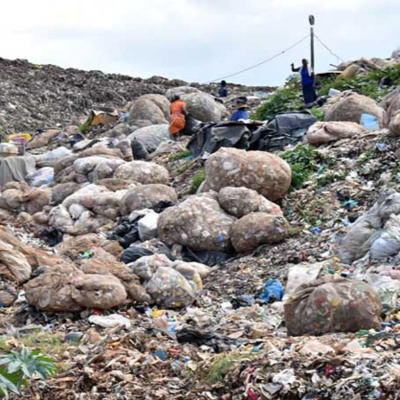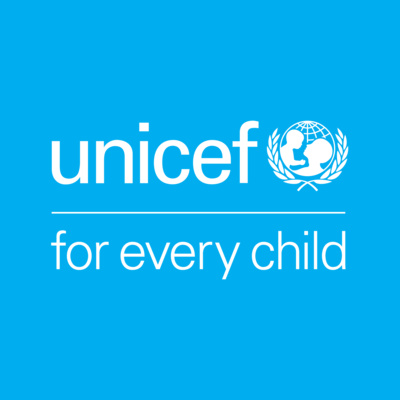
Shifting The Needle
By Daniel Shamblin

Shifting The NeedleJul 03, 2021

Ep. #9 Uganda's Solid Waste Challenge
Joining this episode to talk about the challenges of Solid Waste Management is Helena McLeod (the Team Lead of Cities and Infrastructure for Growth (CIG)) and Dr. Najib Bateganya Lukooya (Urban Sanitation Expert with CIG). CIG is a five-year UKAid funded initiative that provides demand-driven technical assistance to address constraints hindering urban development in the Jinja–Kampala–Entebbe corridor, emphasizing the Greater Kampala Metropolitan Area (GKMA).
Uganda's rapid population growth and urban migration bring several development challenges including Solid Waste Management (SWM). At the forefront of the issue is proper disposal. Less than 50% of all waste makes it to a designated landfill. As a result, plastic pollution from bags and bottles, among other waste, is littering the land and choking waterways. Then the second major challenge is appropriately managing the waste that does reach the landfill. Kampala has one landfill, Kiteezi, which serves approximately 5 million people and receives about 1,300 tons of trash per day. However, the landfill is past its intended life span, under-engineered, suffers safety and environmental problems and is full. A new landfill is scheduled to open in approximately two years. Still, there remain issues on how and who will close the current landfill properly, the future use of the closed landfill site, the associated job losses from the landfill moving, and how to open and maintain a better new location.
Furthermore, as no one wants a landfill in their neighborhood, protests are expected surrounding opening the new location. However, the issue of SWM needs to be dealt with soon. Future projections show that by 2030, annual waste is to increase by approximately 60% for Kampala.
Additional resources:
www.ugandacig.com
https://youtu.be/SvTu5V60_KE
https://www.kcca.go.ug/Waste-Treatment-and-Disposal

Ep. #8 UNICEF: Child Well-Being Threatened
In episode 8, we speak with Dr. Munir A. Safieldin, UNICEF's Country Representative to Uganda. Our conversation covers the heightened threats to children resulting from the Covid-19 pandemic and UNICEF's response. Recorded in October 2021, Uganda has been reeling from the effects of the Covid-19 pandemic for almost two years. Although the pandemic and lock-downs have affected the economy, livelihoods, health, and well-being of the population, it has also elevated risks to children. Among contributing factors has been school closures. Currently, 15 million children are locked out of school.[1]Early grade students are now missing two academic years. Although schools are a place for learning, they also provide child supervision while parents pursue their livelihoods. With schools closed, children often go unsupervised. While some remain home, others work to support their families or are forced into more vulnerable situations like begging on the streets. Among alarming indicators that child well-being is threatened are the increased rates of teenage pregnancy. Some regions in Uganda have shown pregnancies of girls 10-14 years have increased 366.5 percent from 290 cases to 1,353 cases.[2] During this episode, we talked about current child protection issues and UNICEF's ongoing support to protect children everywhere.
To find out more information, use the following links
1. https://www.unicef.org/uganda/
2. https://www.unicef.org/uganda/reports/unicef-update-socioeconomic-impact-covid-19-children
[1] UNICEF, The Socioeconomic Impact of Covid-19 on Children, Bulletin 1, August 2021
[2]IBID
Episode Music Credit With Permission: Fugazi, Long Division, Steady Diet of Nothing, Discord Records

Ep. #7 IFAD Investing In Rural People
In episode seven of Shifting the Needle, we speak with Lakshmi Moola the Uganda Country Director at the International Fund For Agricultural Development (IFAD). With a focus on "investing in rural people," in Uganda, IFAD is working to increase the incomes of rural households living in poverty, along with improving their food security and reducing their vulnerability. Most of the rural population in Uganda depend on Agriculture for their livelihoods. In response, IFAD's activities target two groups: poor smallholder households who have the potential to commercialize their economic activities, and extremely vulnerable households, who have limited livelihood options and are generally bypassed by development initiatives.
To find out more information:
https://www.ifad.org/en/web/operations/w/country/uganda
Music Credit: Artist: Fugazi / Song: Long Division /Album: Steady Diet of Nothing / Discord Records

Ep.#6: The Demographic Tsunami Hitting Uganda
Population Growth in Uganda / Guest: Rachel Sebudde, Senior Economist at the World Bank in Uganda
Population growth poses a significant challenge to Uganda’s development. With high fertility rates, the population is expected to double in the next 40 years from 46 million to 106 million people.[1] Furthermore, Uganda’s population is overwhelmingly young, with 70% under the age of 30 years old, and 48% under 15 years, making Uganda one of the youngest populations in the world.[2] In addition, about half of the population will reside in urban centers as they search for opportunities for employment and education. For a country about the size of the USA state of Texas, the population density brings a lot of challenges. The country already struggles to deliver essential social services, specifically in education, health, electricity, and water and sanitation, and in managing public investment projects.
Conversely, population growth can also have some benefits. For example, an expansive youthful population is a potential labor force that could boost economic growth. But there needs to be a significant investment to create enough new jobs for a population that already struggles with unemployment.
To unpack the issues related to population growth, we are joined by Rachel Sebudde, Senior Economist at the World Bank Uganda.
Links for further information:
- “World Bank. 2020. Tackling the Demographic Challenge in Uganda. World Bank, Washington, DC. © World Bank. https://openknowledge.worldbank.org/handle/10986/34676 License: CC BY 3.0 IGO.” https://openknowledge.worldbank.org/handle/10986/34676
Music Credit: Artist: Fugazi Song: Long Division Album: Steady Diet of Nothing
[1] World Bank. 2020. Tackling the Demographic Challenge in Uganda. World Bank, Washington, DC. © World Bank. https://openknowledge.worldbank.org/handle/10986/34676 License: CC BY 3.0 IGO
[2] Ibid

Ep.#5: Green Growth In Uganda
Uganda has ambitious plans to become a middle-income country by 2040. However, climate change, unsuitable agriculture practices, and a rapidly growing population can compromise its progress. In response, the Government of Uganda has developed the Uganda Green Growth Development Strategy (UGGDS) to operationalize green growth principles and accelerate sustainable development goals. With principles such as resource efficiency, equity, social inclusion, low emissions, and sustainable economic growth, green growth presents an innovative growth path that simultaneously generates inclusive economic development and environmental sustainability.
In Episode 5 of Shifting the Needle, we are joined by Dagmar Zwebe, the Uganda Country Representative of the Global Green Growth Institute (GGGI), to talk in-depth about the issues related to green growth in Uganda. GGGI is “a treaty-based international, inter-governmental organization dedicated to supporting and promoting strong, inclusive and sustainable economic growth in developing countries and emerging economies.” More information and resources about GGGI can be found at www.gggi.org.

Ep.# 4: Land Access and Ownership Challenging Development
Access to land is fundamental to the majority of Ugandans. Yet, approximately 70-80% of the population do not have legally documented land titles (USAID/Uganda, Uganda Land Links). As a result, conflicts over land access and ownership are common. An estimated one in four Ugandans experiences land-related justice problems. Land disputes cause a lot of stress and ultimately affect people’s ability to provide for themselves and their families. Compounding the issue is Uganda’s population density which is increasing rapidly, placing significant pressure on land use and demand. Despite progress made to address land-related legislative issues, the land sector faces several challenges that include insecurity of tenure, overlapping and conflicting land rights, and glaring inequity in access to and ownership of land.
In this episode, Esther Obaikol, a Land Governance expert with over 20 years of experience working on land issues, joins for an in-depth discussion on land challenges to development.

Ep.# 3: Governance Challenges in Uganda: Functional Planning, Local Revenue Collection, and Regional Development
What are some of the governance issues hindering Uganda's development? In this episode, we are joined by Joel Mundua, the Governance Specialist at United Nations Capital Development Fund (UNCDF), to explore issues of inadequate resourcing of districts, mechanisms to improve revenue collection, district proliferation, and the need for a regional approach to development.

Ep.#2: Wildlife Crime In Africa
In episode two of Shifting the Needle, we interview Ofir Drori, an Israeli writer, educator, and activist. Mr. Drori is the founding director of the EAGLE Network (Eco Activists for Governance and Law Enforcement), which is leading the fight against wildlife crime in Africa. The EAGLE Network tracks down major wildlife dealers illegally trading in ivory, animals, and animal parts using undercover investigations and raids. Their work has led to the arrest of more than 2,500 wildlife traffickers, including a crime syndicate responsible for killing an estimated 300 elephants per month since the 1980s.
To find out more about Mr. Drori and the EAGLE Network, follow the link below:
https://www.eagle-enforcement.org/

Ep.#1: The Fight Against Child Sacrifice in Uganda
In the first episode, I explore the issue of ritual mutilation and child sacrifice in Uganda with Pastor Peter Micheal Sewakiryanga. Peter is the director of Kyampisi Childcare Ministries (KCM) which was founded to protect vulnerable children. They have established a school, maternal health clinic, and rehabilitation center for children with disabilities. However, their largest program area is the fight against Child Sacrifice.
Linked to cultural beliefs, ritual mutilation and sacrifice of children, unfortunately, occur regularly across Uganda. Many people in Uganda seek the council and support of spiritual healers, also known as traditional healers or witch doctors. In most communities, there is a witch doctor with a shrine who provides a variety of services from spiritual counsel, medical treatment, matchmaking, and wealth creation. It is believed that they have direct connections to the spirit world to help people overcome any challenge. However the greater the problem the greater the expense and the required sacrifice to the spirits.
KCM has been the leading organization in the fight against child sacrifice, by raising awareness, supporting police to conduct arrests, lobbying to strengthen laws, and providing medical attention and physiological support to victims and their families.

Trailer
"Shifting the Needle" takes an in-depth look at the key challenges hindering Uganda's development. Following the central question of "how to support Uganda's journey to self-reliance and foster locally-led development?" the host Dan Shamblin, an international development consultant with eight years of experience in Uganda, explores a variety of development topics, including; climate change adaptation, population growth, health, economics, governance, trade, and renewable energy.